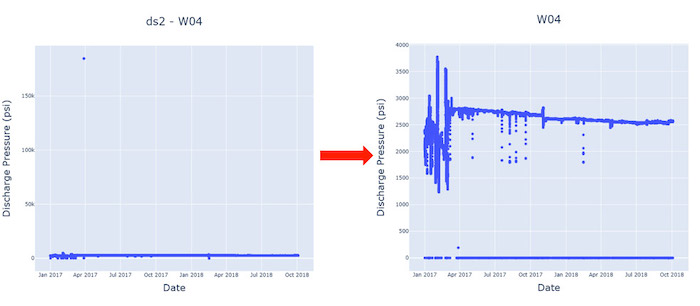Today, several sectors are driven by digital technology, and geosciences are no exception. Machine Learning is one of the subcategories of artificial intelligence, largely used to resolve more complex challenges in exploring and using georesources.
About thirty students in the Petroleum Geosciences (PGS) and Reservoir Geoscience and Engineering (RGE) programs of IFP School learned the basics of the Machine Learning methods as part of a new mandatory module "Machine Learning and Data Analytics", devised by Frédérique Fournier, Director of the Georesources and Energy center, and Karine Labat, Supervisor of the Petroleum Data Management program.
"The objective of this course is to teach the students about automated machine learning techniques, where algorithms learn from data. These techniques provide a means of exploring data and also add value to data, based on their analysis or even by making predictions," explains Karine Labat.
"These are innovative techniques which are now applied everywhere, in addition to standard methods. In certain cases, they may also replace the latter! These are classification, clustering and regression methods," adds Karine.
The module started at the beginning of 2022 with a series of lecture courses by researchers in the Sciences and Technologies Division of IFP Energies nouvelles and Yani Meziane, graduate of the Petroleum Geosciences program (class of 2019).
Since there are many fields of application for Machine Learning, 35 students from the Processes for Energy and Chemicals and Powertrains and Sustainable Mobility centers also attended the lectures along with the PGS and RGE classes. The educational team wished to test the new module to assess its possible integration in the other training courses.
The students then paired off to work on mini-projects based on current data.
"For the PGS and RGE students, this was when we could work with current data sets in the domains of geosciences and reservoir engineering, and to resolve typical problems," explains Karine Labat.
"The objective is that our students become agile when handling data and have operational competence when it comes to Machine Learning topics," she adds.
To this end, the groups worked on Machine Learning applications for two months to resolve reservoir attribute estimation, seismic interpretation, and even georesources production optimization related problems. Supervised by coaches, the students benefitted from the expertise of professionals from Beicip-Franlab, IFP Energies nouvelles engineers, IFP School lecturers and two young graduates from the PGS program (class of 2021), Imoleayo Fashagba and Maria Betania Cedeño Tepedino.
The students had to submit their work in the form of a poster and then present it via a 5-minute podcast or a pitch of the same duration before a jury comprising professionals.
Already having experience with the MATLAB solution, Elias Macuacua (Mozambique) and Aymeric Astoux (France), both students of the Petroleum Geosciences program, learned to code using Python by themselves. They were very satisfied with the course and talked about it enthusiastically:
"I really appreciated having the opportunity to acquire skills which are being used increasingly in geosciences. Companies in this sector are searching for people with at least minimal education in programming and Machine Learning," says Elias.
"We improved our knowledge and skills in data analysis and programming, particularly in Python,” says Aymeric.
"We are now able to analyze and make important deductions based on a data set," he adds.
Elias and Aymeric challenged themselves by choosing a subject which is rather focused on reservoir engineering. They worked on predictive maintenance by applying clustering techniques.
Supervised by Beicip-Franlab Reservoir Engineer Baptiste Auffray, they applied and tested algorithms to anticipate the occurrence of breakdowns on electric submersible pumps (ESP), used on two oil fields to help production of subsurface fluids.

"We analyzed various variables related to the functioning of the pumps such as the intensity of the motor, its frequency and pressure," explains Elias.
"We tried to anticipate the anomalies to considerably reduce the maintenance costs," says Aymeric.
Ademola Adelakun, a Nigerian student in the Reservoir Geoscience and Engineering program, and Maria Hinojosa Chacin (Venezuela) chose a geosciences topic, a field in which they are not specialists.
Coached by PGS graduate Maria Betania Cedeño Tepedino, they worked on data from Equinor’s Volve field. Their project involved estimating reservoir properties, from well data, using regression methods based on neural networks.
"The approach of using a regression function to predict very important properties of the rock was very attractive to me," says Ademola.
"By applying certain regression models, we tried to simultaneously predict the volume, the porosity and the water saturation of the sandstones using standard logs: gamma-ray, bulk density, neutron porosity, resistivity and sonic," explains Ademola.
"I liked resolving a practical problem by coding using Python and gaining skills in terms of data visualization. Now I have a better understanding of Supervised Learning!” he adds.
Special report written by Meyling SIU